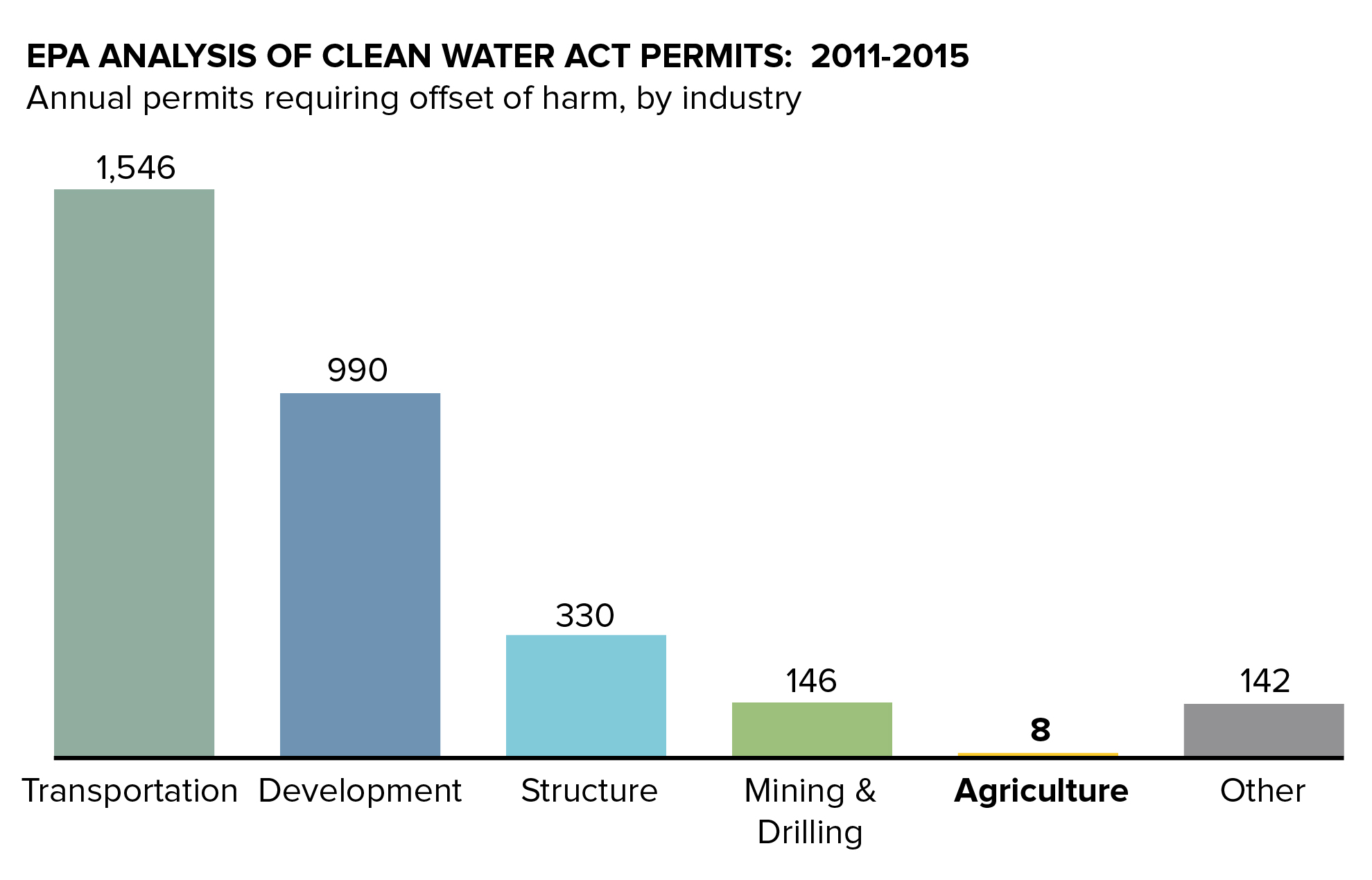EPA analysis: Proposal cutting clean water protections benefits heavy industry, not farmers
Buried deep in the Environmental Protection Agency’s economic analysis of the agency’s proposal to gut clean water protections lies a finding that debunks the administration’s sales pitch on its new proposal. As reported by the Associated Press, although the administration put farmers forward as the face of their proposal, heavy-polluting industries and developers would benefit most from gutting long-standing safeguards.
The proposed new “waters of the United States” definition would eliminate protections that have been in place for nearly 50 years. The EPA’s economic analysis shows that, of the approximately 3,163 more significant permits each year, only eight were obtained by agricultural interests. By contrast, development, construction, and industrial interests accounted for more than 2,600 permits a year. These permits, and the review process they requite, are essential to protecting the small streams and wetlands that keep our rivers and streams clean for crop irrigation, fishing, and as sources of drinking water.

EPA’s efforts to hide the motivation for their proposal speaks volumes. This unprecedented attack on clean water protections threatens thousands of miles of streams and millions of acres of wetlands nationwide. As the agency’s analysis makes clear, those streams and wetlands would primarily be lost to mining, drilling, and sprawl development—not agriculture.
The agricultural economy has flourished with responsible water quality protections in place over the last 50 years. The agency’s proposal threatens those gains by refusing to hold upstream polluters accountable for their pollution. As we’ve seen over the last few years, polluted irrigation water is a threat to both rural economies and people’s health. On Monday, President Donald Trump traveled to New Orleans to tout his gutting of the rule against the backdrop of the annual Farm Bureau convention.
The administration understands good optics in surrounding themselves with farmers,” in proposing the rollback, said Senior Attorney Geoff Gisler. “Surrounding themselves with folks that would represent the industries that actually benefit would not be as good an optic.
Soon, an important opportunity for the public to weigh in on the proposal to strip away essential clean water protections will begin. EPA is required by law to ask for and consider public comments before finalizing its proposal. Citizen comments supporting clean water are critically important. Once the public comment period opens in the coming days, SELC will be leading the charge, with our partners across the region, to mobilize as many public comments as possible via ProtectSouthernWater.org.
